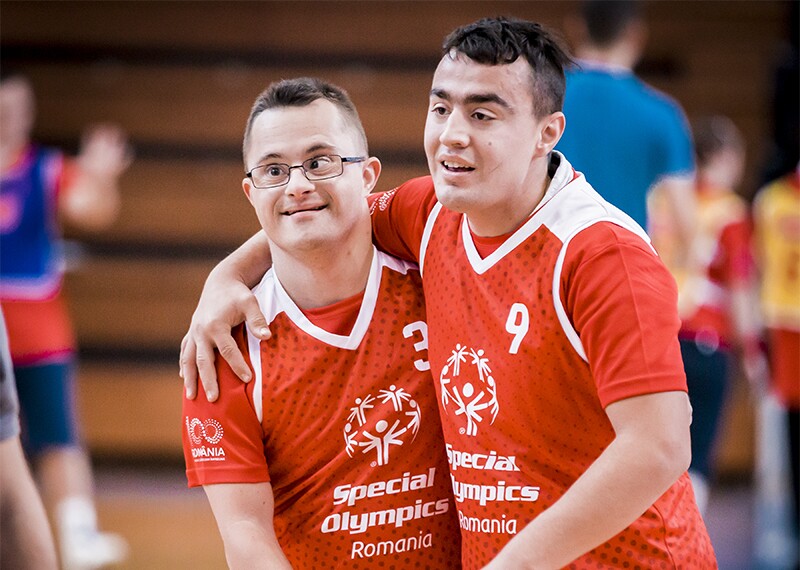Integration or Separation: The Special Olympics and Paralympics Debate
The debate of whether the Special Olympics should remain standalone from the Paralympics is a complex and multifaceted question that involves many different types of consideration. These include inclusivity, fairness, and the integrity of competitive sports. To address the elephant in the room, the Special Olympics and Paralympics are very different from one another. Each of these sporting events serve different purposes and populations with the Special Olympics focusing on individuals with intellectual disabilities, providing them with the opportunity to play sports whether on a competitive or social level, whilst the Paralympics is for those with a broader range of disabilities such as physical, visual, and intellectual impairments. Many see both sides of whether they should be joined together or not. With those arguing that they should stay separate argue that the Special Olympics offer individuals with intellectual disabilities a unique platform tailored specifically to their needs. It also provides a supportive environment where athletes are all on a similar playing field, which can foster a sense of belonging and friendship. A big difference though with the Special Olympics is that they have a huge emphasis on promoting inclusion and acceptance, which isn't exactly so pronounced in the Paralympics, which the focus is more diversified across various disabilities. But there are still very compelling arguments about allowing individuals with intellectual disabilities to participate in Paralympic events. For instance, integration into the Paralympics could provide more opportunities for those with intellectual disabilities to compete at higher levels of competition. This could lead to a greater access for resources and recognition. On top of this, it could also break down stigmas and misconceptions that surround intellectual disabilities by showcasing the athletes abilities and achievements on a global stage.
The issue though starts to become a bit more complicated when considering the history of cheating and scandals in the Paralympic events involving intellectual impairment. Because of these scandals, they have led to a stricter eligibility criteria which ultimately led to the exclusion of intellectual impairment as a recognized disability category within the Paralympic Sports. One of the most notorious examples of this is back in the 2000 Sydney Paralympic Games where "Spain was stripped of the gold medal they won at Sydney 2000 after it emerged players had pretended to be intellectually disabled when they were not" (Pavitt, 2021). While the measures that were put in place were indeed necessary to maintain the integrity of competition, it also went ahead and highlighted the challenges and complexities of accommodating intellectual disabilities within the Paralympic framework. Due to all of the cheating scandals that were arising, the IPC had to make the difficult decision to remove intellectual impairment as a recognized disability category within the Paralympics. The decision though was not taken lightly and was driven by the need to prioritize the integrity of competition while still exploring alternative approaches to accommodate athletes that have intellectual disabilities in the future. Today, it is still hard for them to find a balance between inclusivity and maintaining the integrity of Paralympic competition with these previous problems.
As talked about in the previous paragraphs, the exclusion of athletes with intellectual disabilities from the Paralympics underscores the critical importance of safeguarding the integrity of competition which is a very important part of the Paralympics. Although this decision may raise questions about inclusivity and representation, it reflects a necessary response to protect the fairness and credibility of the Paralympics. With the complexities of accurately assessing intellectual impairment present many challenges in establishing more so a clear eligibility criteria while still not risking exclusion or unfair treatment of athletes. Regardless of this though, it allows them to reflect and innovate within the Paralympic movement. What is very important still is that continued dialogue, collaboration, and exploration of possible alternative approaches are key to develop inclusive solution that honor the principles of fair play while still ensuring that athletes with intellectual disabilities have opportunities to participate and excel just like anyone else. By finding a balance between inclusivity and maintaining the integrity structure, the Paralympic movement can still continue to inspire and empower athletes of all abilities, while still upholding the values of respect, equality, and excellence. Down the line, maybe we will see the two combine once again which would be amazing to see, but regardless of this issues need to be discussed and before they can make any final decisions, they need to find ways to help create a fair and balanced competitive floor mat.



Comments
Post a Comment